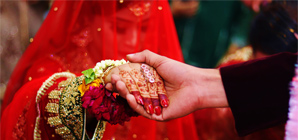Hijab Case Judgment: Petition Dismissed
Posted On : March 15, 2022

Table of Contents
The Hijab case in Karnataka has gained national as well international attention due to the religious nature of the matter. It turned a hijab controversy through a government order and the matter was taken up to the judiciary. Here is what exactly happened in the hijab case judgment today. However, the petitioners still have the option of appeal against the hijab case judgment by Karnataka High Court.
Hijab Case Judgment Today
The most awaited hijab case in Karnataka High Court decision has been pronounced. The court formulated four issues/ questions to which answers were summarised based on arguments by both the parties, i.e. petitioners (Muslim girl students wearing hijab, etc.) and the respondents (Government representative and school-college representatives, etc.).
The Karnataka High Court has rejected the claim of hijab as an essential religious practice under Article 25 of the Constitution of India by the female Muslim students. While deciding whether prescription of school uniform could be violative of right to privacy or the right to freedom of expression, the bench held that uniform is only a reasonable restriction which can not be objected to by the students. Regarding the validity of the Government Order argued to be violative of rights under Article 14 and 15 of the Constitution of India, the Karnataka High Court held that the government has power to issue such orders. The requests for issuance of writ of Quo Warranto or a disciplinary action against the responsible authorities has been rejected by the court. Hence, the petition by Muslim girl students against the hijab ban has been dismissed by the Karnataka High Court.
Hijab in Islam
Islam is the world’s second largest religion prevalent in numerous countries. It is also reportedly one of the fastest growing religions in the world. Islam was founded by Prophet Mohammed who also proclaimed the holy Quran. Islam is known for various practices one of which is hijab scarf. Hijab in Islam is a cloth veil worn by some of the Muslim women to cover their head and chest.
Hijab Controversy
Hijab is not a uniformly essential practice among all the Muslim women, but for those who follow the same, they do it religiously. The same was being followed by the Muslim girl students in Karnataka. The Udupi Hijab case came into existence as a controversial matter when a government was released restricting wearing any cloth/ attire in the educational institutes which may disturb peace, harmony, and law and order. The order delegated further decisive powers relating to school uniforms to the College Development Committees (CDC). Hijab row ignited when school girls wearing hijab were restricted from entering the educational institutes who protested against the school authorities. The fight between those Muslim students and the authorities became a nationwide controversy when some other student groups started their sloganeering wearing saffron scarfs proclaiming their Hindu status.
Hijab Case in Karnataka High Court
The Muslim girl students brought the matter before Karnataka High Court for relief. They stated Hijab in Islam to be an essential practice and their right to freedom of religion as per the Constitution of India. The matter was initially taken up before Justice Krishna S. Dixit. Considering the seriousness of Hijab controversy and the nation-wide spread of hatred, the matter was referred before a larger three judge bench constituting Chief Justice of Karnataka High Court, Justice Ritu Raj Awasthi along with Justice Dixit and Justice J.M. Khazi. The Karnataka High Court bench patiently heard all the petitioners at first followed by the Advocate General of Karnataka. An interim order was also passed by the court to restrict wearing religious attires or flags in the classrooms till hijab case hearing concludes. While the Hijab case hearing was still ongoing, the Karnataka government issued another order whereby wearing of any religious attire including hijab scarf as well as saffron shawls was banned. Anyhow, the Karnataka hijab case went on for 11 days after which the hijab case in Karnataka High Court decision order was reserved. Hijab case judgment date was disclosed on Monday, March 14 that the Hijab judgment will be pronounced on Tuesday, March 15, 2022 at 10:30 AM.
Hijab Case Judgment: End of the story?
The Karnataka High Court has decided the Udupi Hijab case as per the arguments held before the three judge bench by both the parties. However, the petitioner Muslim girl students still have the right to appeal against the hijab case in Karnataka High Court decision. And as per the previous scenario, it is expected that the matter will be discussed again, this time in the premises of the hon’ble Supreme Court of India.
Inference
Someone who has followed the hijab ban case religiously through the Karnataka High Court live proceedings virtually, they must be of the opinion that the court has missed out on the opportunity of bringing an end to the hijab controversy. It was an auspicious occasion whereby a South African judgment of an Indian girl’s essential Hindu cultural practice of wearing a nose pin could lay the foundation stone of allowing Hijab scarf through as was cited by Senior Advocate Devdutt Kamat. However, since the hijab case in Karnataka High Court decision is already proclaimed, the ball may soon come in the Supreme Court’s court.
























